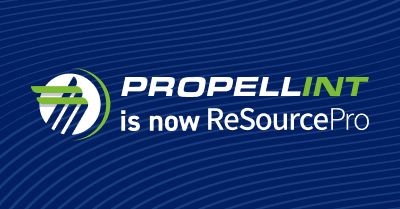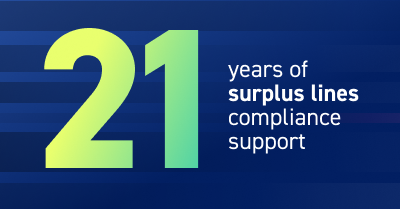Elaine is a Marketing Associate at ReSource Pro Compliance
For producers holding the major lines of authority, choosing a home (or resident) state is straightforward. It’s the state or American territory where an individual maintains his or her home or an entity maintains its principal place of business. When it comes to adjuster licensing, though, it’s not quite as straightforward.
Although uniformity has come a long way, there are still 16 states that do not issue a resident adjuster license. Adjusters can work in these states without going through the whole pre-licensing education/licensing exam/license application process. But when they want to adjust claims in non-resident states, they hit a snag.
Reciprocity
One of the things that makes non-resident licensing so manageable is reciprocity between states. Reciprocity is the agreement between insurance regulators to each honor pre-licensing education and/or licensing examinations completed in another state. Without reciprocity, producers working nationwide would have to take 50+ licensing exams!
But if an adjuster didn’t have to complete these requirements in their home state, reciprocity can’t apply. Consequently, each non-resident “licensing” state could require adjusters from “non-licensing” states to take their exams—a time-consuming, not to mention expensive—proposition. But they don’t. Instead, there’s the designated home state (DHS).
The Designated Home State
Under the Designated Home State provision, an adjuster living in a “non-licensing” state can choose any one of the “licensing” states to be the foundation of their non-resident licensing. Firstly, they complete any pre-licensing education requirements, pass the exam, and apply for an adjuster license there. After that license issues, they can obtain non-resident licenses in all states with reciprocity to their designated home state.
The snag, however, is that not all designated home states are created equal. Reciprocity isn’t universal. Texas, for example, is reciprocal with all states except New York, California, and Hawaii. This includes the 16 non-licensing states, which don’t require non-resident adjusters to hold licenses there either. Florida and Indiana are also popular choices for a designated home state for the same reason.
It’s important to remember, though, that it’s “inbound” reciprocity that matters. New York, for example, doesn’t grant reciprocity for any non-residents wanting to adjust claims in the Empire State—even though 20 other states honor the New York adjuster license (not including the non-licensing states)! If you want to be an adjuster in New York, there’s no option but to take their exam.
Creating an Adjuster Licensing Strategy
Depending on where you want to work and what kind of claims you want to handle, you may wind up having to take more than one licensing exam. The goal is to create an efficient strategy that minimizes the number of exams you need to take. Don’t forget, too, that taking multiple exams may also mean having to meet continuing education requirements in more than one state. That’s why the best option is to pick a DHS with reciprocity with the states where you want to transact business. Then you can “fill in the gaps” as needed.
One of the key decisions that may impact your strategy is whether you want to work catastrophe (CAT) insurance claims. The seasons and regions for the various types of catastrophic events vary, but the financial returns for handling this type of claim can be significant—especially if you’re licensed where most adjusters aren’t.
Emergency Adjusters
One other thing to keep in mind if you want to work CAT claims: states impacted by these widespread disasters often find their roster of licensed adjusters insufficient to meet the huge number of claims. In this case, a regulator may grant permission for non-resident adjusters to work in their state for a limited time without going through the full licensing process.
However, some states require that an adjuster hold a license in a state with “substantially similar licensing requirements” in order to qualify for emergency adjuster status. This isn’t universally true. Other states word their declarations to allow “experienced adjusters” who are “licensed in the other state (if the state requires a license)” to apply. It does mean that an adjuster from a non-licensing state needs to read emergency declarations carefully before seeking to work claims outside its borders.
Knowing whether you need to be licensed takes a little more research if you’re an adjuster, but it’s essential. After all, handling claims without the appropriate state approval can result in administrative actions that can make getting licensed harder in the future.
Find out how ReSource Pro helps insurance agencies and producers meet their licensing and compliance needs by visiting our compliance page.



